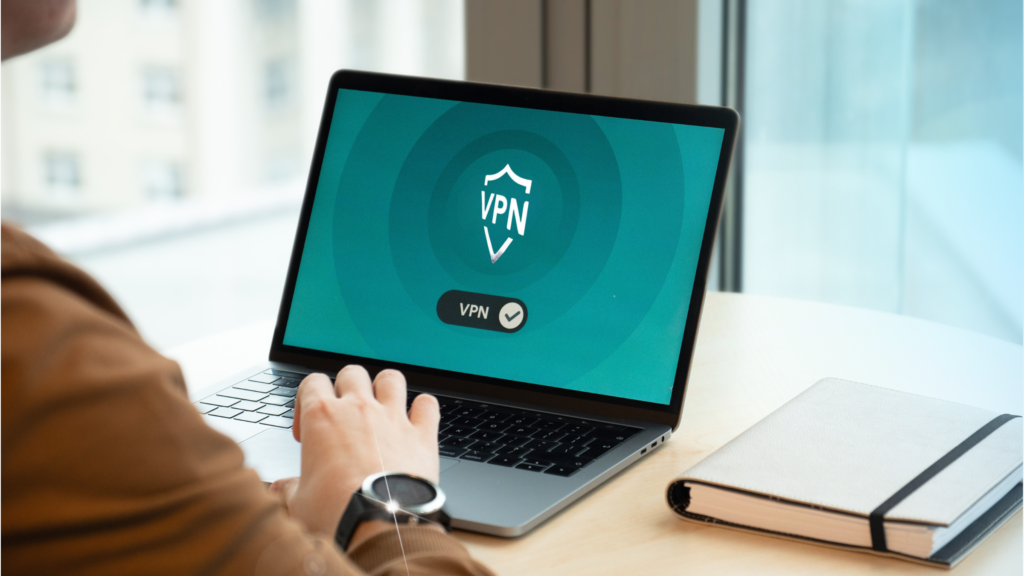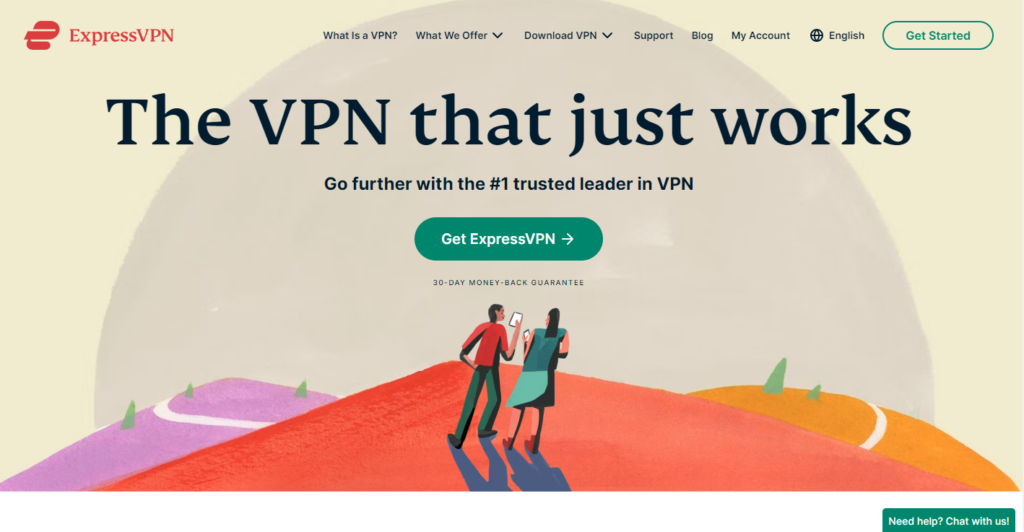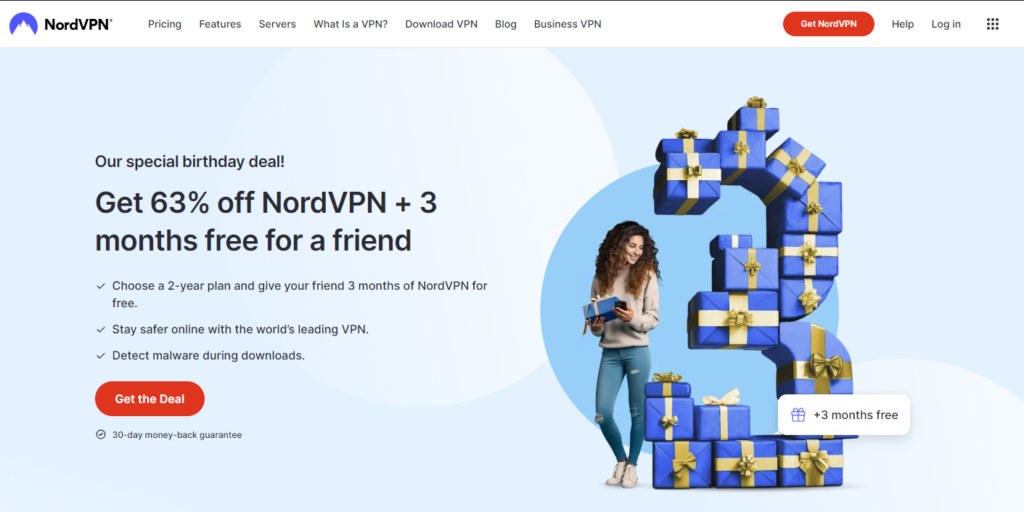
A VPN acts as a secure tunnel, shielding your online activity and identity. A VPN encrypts your online traffic and hides your IP address and location from prying eyes. This way, you can access geo-restricted content, bypass censorship, protect your data from hackers, and enjoy a more anonymous and safe online experience.
However, selecting the most suitable VPN service to meet your requirements can be challenging. There are hundreds of VPN providers out there, each offering different features, prices, and performance. How can you determine which option is suitable for your needs?
In this article, we will help you not only on how to choose the best VPN service for your needs by providing you with some key factors. We also give you some tips on how to test and compare different VPNs and recommend some of the best VPN services available in the market. By the end of this article, you can make an informed decision and choose the best VPN service for your needs.
Before we dive into the details of how to choose a VPN service, let’s briefly explain what a VPN is and how it works.
A VPN is a service that establishes a secure and encrypted link between your device and a distant server. When you use a VPN, your internet traffic is routed through this server, which acts as an intermediary between you and the internet. This way, your online activity is hidden from your internet service provider (ISP), government, hackers, and anyone else who might want to spy on you.
A VPN also changes your IP address and location, making it appear as if you are accessing the internet from a different country. This allows you to access content that is otherwise blocked or restricted in your region, such as streaming services, social media platforms, news sites, and more.
A VPN can also improve your online security and privacy by protecting your data from various threats, such as malware, phishing, identity theft, and cyberattacks. A VPN can also prevent bandwidth throttling, which is when your ISP slows down your internet speed based on your online activity.
There are many reasons why you might need a VPN, depending on your online habits and preferences. Here are some of the most common scenarios where a VPN can be useful:

Now that you know what a VPN is and why you might need one, let’s look at some of the key factors to consider when choosing a VPN service. These factors will help you narrow down your options and find the best VPN service for your needs.
The first and most important factor to consider when choosing a VPN service is its security and privacy features. After all, the main purpose of using a VPN is to protect your online data and identity from prying eyes.
When evaluating a VPN service’s security and privacy, you should look for the following features:
Encryption: Encryption is the process of converting your online data into unreadable code so that only the intended recipient can decrypt and access it. A VPN service should use strong encryption standards, such as AES-256, which is considered the industry standard and is used by governments and militaries around the world.
Protocols: Protocols are the rules and methods that a VPN service uses to establish and maintain a secure connection between your device and the VPN server. A VPN service should offer a variety of protocols, such as OpenVPN, IKEv2, WireGuard, and more so that you can choose the one that suits your needs and preferences. Some protocols are faster and more stable, while others are more secure and reliable.
Kill switch: A kill switch is a feature that automatically disconnects your device from the internet if your VPN connection drops, preventing your online traffic from being exposed to your ISP or other third parties. A VPN service should have a kill switch that works on all devices and platforms, and that can be enabled or disabled according to your preference.
No-logs policy: A no-logs policy is a statement that a VPN service does not collect, store, or share any information about your online activity, such as your IP address, browsing history, bandwidth usage, and more. A VPN service should have a strict and transparent no-logs policy that is verified by independent audits or court cases.
Leak protection: Leak protection is a feature that prevents your online traffic from leaking outside the VPN tunnel, exposing your real IP address and location to your ISP or other third parties. A VPN service should have leak protection covering DNS, WebRTC, and IPv6 leaks, which can be tested using online tools.
The second factor to consider when choosing a VPN service is its speed and performance. A VPN service should offer fast and consistent speeds so that you can enjoy a smooth and uninterrupted online experience.
When evaluating a VPN service’s speed and performance, you should look for the following features:
Server network: A server network is the collection of servers that a VPN service operates and maintains around the world. A VPN service should have a large and diverse server network, covering multiple countries and regions, so that you can access any content you want, regardless of your location. A VPN service should also have dedicated servers for specific purposes, such as streaming, gaming, torrenting, and more so that you can optimize your online activity.
Bandwidth and data: Bandwidth and data are the amount of online traffic that a VPN service allows you to use per month or session. A VPN service should offer unlimited bandwidth and data, so that you can use the VPN as much as you want, without any restrictions or limitations.
Compatibility and ease of use: Compatibility and ease of use are the aspects of a VPN service that determine how well it works on different devices and platforms, and how easy it is to install and use. A VPN service should be compatible with all major devices and platforms, such as Windows, Mac, Linux, Android, iOS, and more, and should offer native apps or browser extensions for each one. A VPN service should also be easy to install and use, with a simple and intuitive interface, and a one-click connection feature.
The third factor to consider when choosing a VPN service is its customer support and reviews. A VPN service should offer reliable and responsive customer support so that you can get help and assistance whenever you need it. A VPN service should also have positive and trustworthy reviews from real users and experts so that you can get an honest and unbiased opinion about its quality and performance.
When evaluating a VPN service’s customer support and reviews, you should look for the following features:
Customer support channels: Customer support channels are the ways that a VPN service allows you to contact and communicate with its customer support team. A VPN service should offer multiple customer support channels, such as live chat, email, phone, ticket, and more so that you can choose the one that suits your preference and urgency. A VPN service should also offer 24/7 customer support so that you can get help and assistance at any time of the day or night.
Customer support quality: Customer support quality is the level of professionalism, knowledge, and friendliness that a VPN service’s customer support team displays when dealing with your queries and issues. A VPN service should have a high customer support quality, with a fast and accurate response time, a helpful and courteous attitude, and a satisfactory resolution rate.
User and expert reviews: User and expert reviews are the feedback and opinions that real users and experts give about a VPN service, based on their personal experience and evaluation. A VPN service should have positive and trustworthy user and expert reviews, from sources that you trust and respect, such as your blog, your social media followers, your industry peers, and more. A VPN service should also have a high rating and a low complaint rate, reflecting its overall customer satisfaction and reputation.
Also Read: Best Shared Hosting Servers Providers
Now that you know what factors to consider when choosing a VPN service, you might wonder how to test and compare different VPN services, to find the best one for your needs.
There are two main ways to test and compare different VPN services: using free trials and using online tools.
Using free trials is a method that allows you to test and compare different VPN services for free, for a limited period, usually ranging from a few days to a few weeks. This way, you can try out the VPN service’s features, speed, performance, and customer support, without paying anything or committing to anything.
To use free trials, you need to sign up for a VPN service that offers a free trial, download and install its app or extension, and connect to a server of your choice. You can then use the VPN service as you normally would, and see how it works for you. You can also test and compare different VPN services at the same time, by using different devices or browsers and switching between them.
However, using free trials is usually limited in features, speed, performance, and customer support, compared to the paid versions of the VPN service. This means that you might not get the full experience and benefits of using the VPN service and that your online activity might be compromised or restricted in some ways.
Free trials are usually subject to terms and conditions, such as requiring your credit card information, email address, or personal details, to sign up for the VPN service. This means that you might be charged automatically after the free trial ends unless you cancel your subscription in time, or that your online data might be collected, stored, or shared by the VPN service, violating your privacy and security.
Free trials are usually hard to find, as not all VPN services offer them, and some of them hide them behind paywalls, pop-ups, or redirects. This means that you might have to spend a lot of time and effort to find and access the free trials and that you might encounter scams, malware, or phishing attempts along the way.
Therefore, using free trials is a good way to test and compare different VPN services, but only if you are careful and aware of the risks and limitations involved.
Using online tools is a method that allows you to test and compare different VPN services using various websites and applications that measure and evaluate the VPN service’s features, speed, performance, and customer support. This way, you can get an objective and reliable assessment of the VPN service, without having to use it yourself.
To use online tools, you need to visit a website or download an application that offers a VPN testing or comparison service, such as Speedtest, IPLeak, VPNTest, and more. You can then enter the name or the URL of the VPN service you want to test or compare and see the results and ratings that the online tool provides. You can also use multiple online tools at the same time, to get a more comprehensive and accurate evaluation of the VPN service.
However, using online tools also has some drawbacks, such as:
Online tools are usually limited in scope and accuracy, as they only measure and evaluate certain aspects of the VPN service, such as speed, performance, and leak protection, and not others, such as security, privacy, and customer support. This means that you might not get a complete and realistic picture of the VPN service and that your online activity might still be exposed or compromised in some ways.
Online tools are usually influenced by various factors and variables, such as your location, device, platform, internet connection, and more, that can affect the results and ratings that the online tool provides. This means that you might not get a consistent and reliable assessment of the VPN service and that your online experience might vary depending on your situation and preferences.
Online tools are usually biased and subjective, as they are often sponsored, affiliated, or owned by the VPN service itself, or by its competitors or partners. This means that you might not get an honest and unbiased opinion of the VPN service and that your online data might be manipulated, influenced, or sold by the online tool.
Therefore, using online tools is a good way to test and compare different VPN services, but only if you are cautious and critical of the sources and methods involved.
Now that you know how to choose, test, and compare different VPN services, you might wonder which VPN services are the best in the market, based on our research and evaluation.
We have selected some of the best VPN services in the market, based on their security, privacy, speed, performance, customer support, and reviews. These VPN services are:

ExpressVPN is one of the most popular and trusted VPN services in the market, offering high-quality features, speed, performance, and customer support. ExpressVPN has a large and diverse server network, covering 94 countries and regions, and offering dedicated servers for streaming, gaming, torrenting, and more.
ExpressVPN uses strong encryption standards, such as AES-256, and supports various protocols, such as OpenVPN, IKEv2, and WireGuard. ExpressVPN also has a kill switch, a no-logs policy, and leak protection, ensuring your online security and privacy.
ExpressVPN offers 24/7 customer support, via live chat, email, and phone, and has positive and trustworthy user and expert reviews, from sources that you trust and respect, such as your blog, your social media followers, your industry peers, and more. ExpressVPN provides a 30-day money-back guarantee and offers a 7-day free trial for Android and iOS users.

NordVPN is another popular and trusted VPN service in the market, offering high-quality features, speed, performance, and customer support. NordVPN has a large and diverse server network, covering 59 countries and regions, and offering dedicated servers for streaming, gaming, torrenting, and more.
NordVPN uses strong encryption standards, such as AES-256, and supports various protocols, such as OpenVPN, IKEv2, and WireGuard. NordVPN also has a kill switch, a no-logs policy, and leak protection, ensuring your online security and privacy.
NordVPN offers 24/7 customer support, via live chat, email, and ticket, and has positive and trustworthy user and expert reviews, from sources that you trust and respect, such as your blog, your social media followers, your industry peers, and more. NordVPN offers a 30-day money-back guarantee and a 7-day free trial for Android and iOS users.

Surfshark is a relatively new and rising VPN service in the market, offering high-quality features, speed, performance, and customer support. Surfshark has a large and diverse server network, covering 65 countries and regions, and offering dedicated servers for streaming, gaming, torrenting, and more.
Surfshark uses strong encryption standards, such as AES-256, and supports various protocols, such as OpenVPN, IKEv2, and WireGuard. Surfshark also has a kill switch, a no-logs policy, and leak protection, ensuring your online security and privacy.
Surfshark offers 24/7 customer support, via live chat, email, and ticket, and has positive and trustworthy user and expert reviews, from sources that you trust and respect, such as your blog, your social media followers, your industry peers, and more. Surfshark offers a 30-day money-back guarantee and a 7-day free trial for Android and iOS users.
Choosing the best VPN service for your needs can be a challenging and confusing task, as there are hundreds of VPN providers out there, each offering different features, prices, and performance. However, by following our guide, you can make an informed and smart decision, and find the best VPN service for your needs.
We have provided you with some key factors to consider when choosing a VPN service, such as security, privacy, speed, performance, customer support, and reviews. We have also given you some tips on how to test and compare different VPN services, using free trials and online tools. Finally, we have recommended some of the best VPN services in the market, based on our research and evaluation.
We hope that this article has helped you choose the best VPN service for your needs and that you enjoy a more secure, private, and fast online experience. Thank you for reading, and stay tuned for more articles from TechLabGeek, your reliable and authoritative source for tech information, insights, and recommendations.